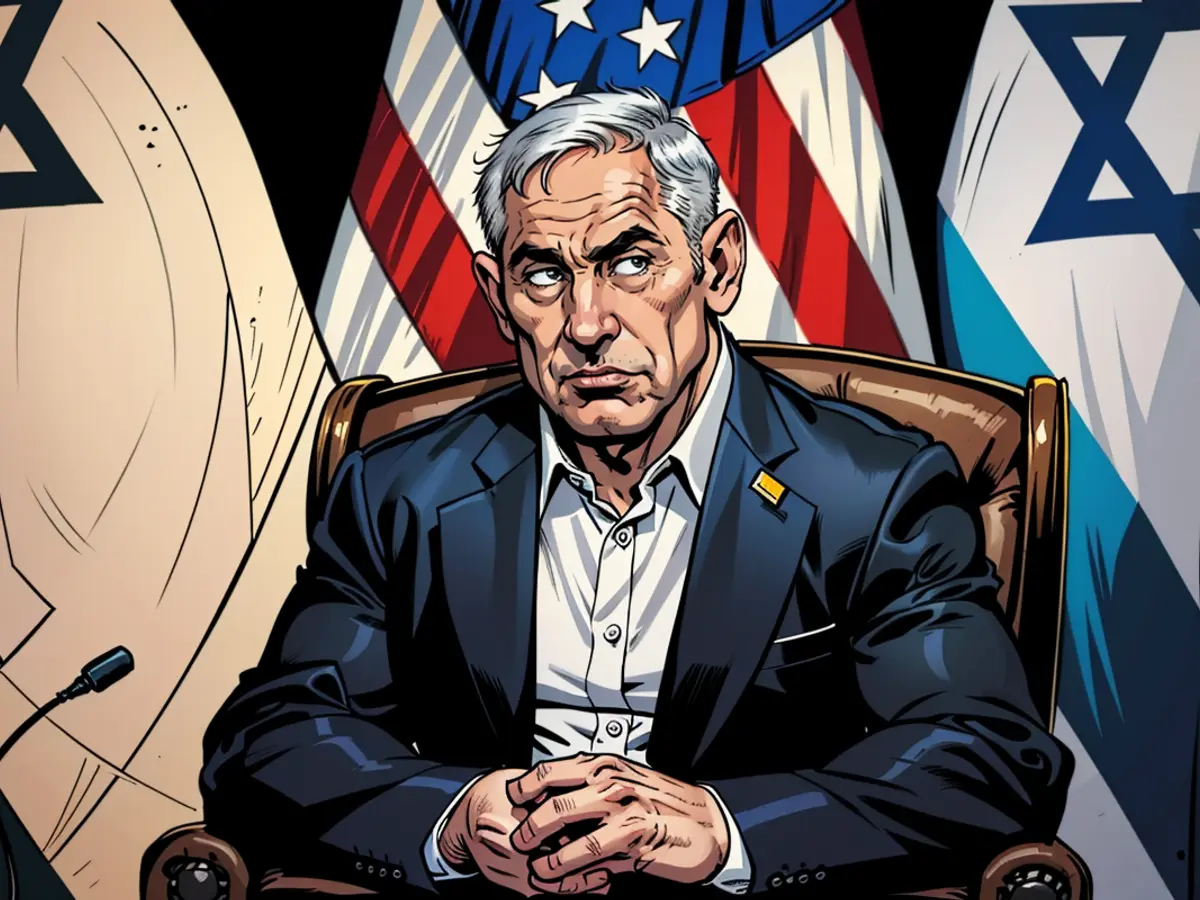Government representative: Netanyahu disbands war council
Gantz left the war council for Gaza on June 9th, following Hamas' massive attack on Israel. This war council, alongside Netanyahu and Gantz, also included Defense Minister Gallant. Previously, former military chief Eisenkot, who observed the council, also chose to resign.
The war council was essential for Gantz to join the unified government, as stated by the government spokesperson Mencer to reporters. With Gantz's departure from the government, the council is no longer needed. Its tasks will be handled by the Security Council now.
After the dissolution of the war council, the Security Council will convene more frequently, said an Israeli government representative. "The Security Council has always been responsible for making decisions (regarding war-related matters). All decisions made by the war council about the Gaza War had to be approved by the Security Council first."
The Security Council includes Netanyahu and Gallant, in addition to National Security Advisor Hanegbi and Minister Dermer, all of whom were also part of the war council.
It's rumored that Netanyahu disbanded the war council to prevent his right-wing extremist ministers, Ben Gvir and Smotrich, from joining the council. Spokesperson Mencer declined to comment on this speculation.
Meanwhile, the conflict in Gaza remains relatively peaceful. Reports suggest that five people were killed and several wounded in Israeli airstrikes on a hospital in Gaza City on Monday. Witnesses also reported explosions in Rafah near the Egyptian border and another air raid in central Gaza. The situation in the rest of Gaza was described as "fairly calm," according to the spokesperson for the Civil Defense in Gaza, Basal.
The Israeli army declared on Sunday that, for the start of the Islamic Feast of Sacrifice Eid al-Adha, they would pause military activity in the southern Gaza Strip temporarily. This pause is meant to facilitate the delivery of more humanitarian aid and will last from 8:00 am to 7:00 pm (local time, 7:00 am to 6:00 pm CET). The ceasefire applies to the road from the Kerem Shalom crossing to Salah-al-Din Street and up north.
However, the Israeli army continues to act in Rafah and the central Gaza Strip. Several Palestinian fighters were reportedly killed during close combat with Israeli forces.
The Gaza War started with Hamas' large-scale attack on Israel on October 7, 2021. Islamic militants allegedly killed 1194 people and held 251 people captive in the Gaza Strip, according to Israeli reports. Israel has been conducting significant military operations in the Gaza Strip ever since. The Hamas-controlled government's Health Ministry claims that over 37,340 people have been killed so far, although this cannot be verified independently.
Since the Gaza War began more than eight months ago, there have been frequent gun battles along the border between Israel and Lebanon. The Hisbollah militia regularly engages in fire fights with the Israeli army to support Hamas, an organization allied with Hisbollah.
According to Mencer, Hisbollah has fired over 5000 shots across the border since the war began. Mencer confirmed that a special envoy from US President Biden, Hochstein, met with Netanyahu. Hochstein also met with Israeli President Herzog, Mencer added. According to Mencer, during his meeting with Herzog, the US envoy discussed the "unremitting attacks and rocket fire by Hezbollah, instigated by Iran, on Israel's northern cities."
Read also:
- The departure of Gantz from the war council means that the tasks previously handled by it will now be managed by the Security Council in Israel.
- Gantz's departure from the government, which occurred on June 9th, led to the disbanding of the war council, as stated by an Israeli government representative.
- Defense Minister Gallant, along with Netanyahu and other cabinet members, was part of the war council that had been essential for Gantz to join the unified government.
- The Security Council, which includes Netanyahu and Gallant, among others, will convene more frequently now that the war council has been disbanded, according to the representative.
- It is speculated that Netanyahu disbanded the war council to prevent his right-wing extremist ministers, Ben Gvir and Smotrich, from joining the council, although spokesperson Mencer declined to comment on this matter.
- The ceasefire announced by the Israeli army on Sunday, for the Islamic Feast of Sacrifice Eid al-Adha, applies to the southern Gaza Strip, excluding Rafah and the central Gaza Strip where military activity continues.
- The Gaza War, which began in October 2021, has resulted in Israel conducting significant military operations in the Gaza Strip, with several reports of Palestinian fighters being killed in close combat with Israeli forces in Rafah and the central Gaza Strip.







